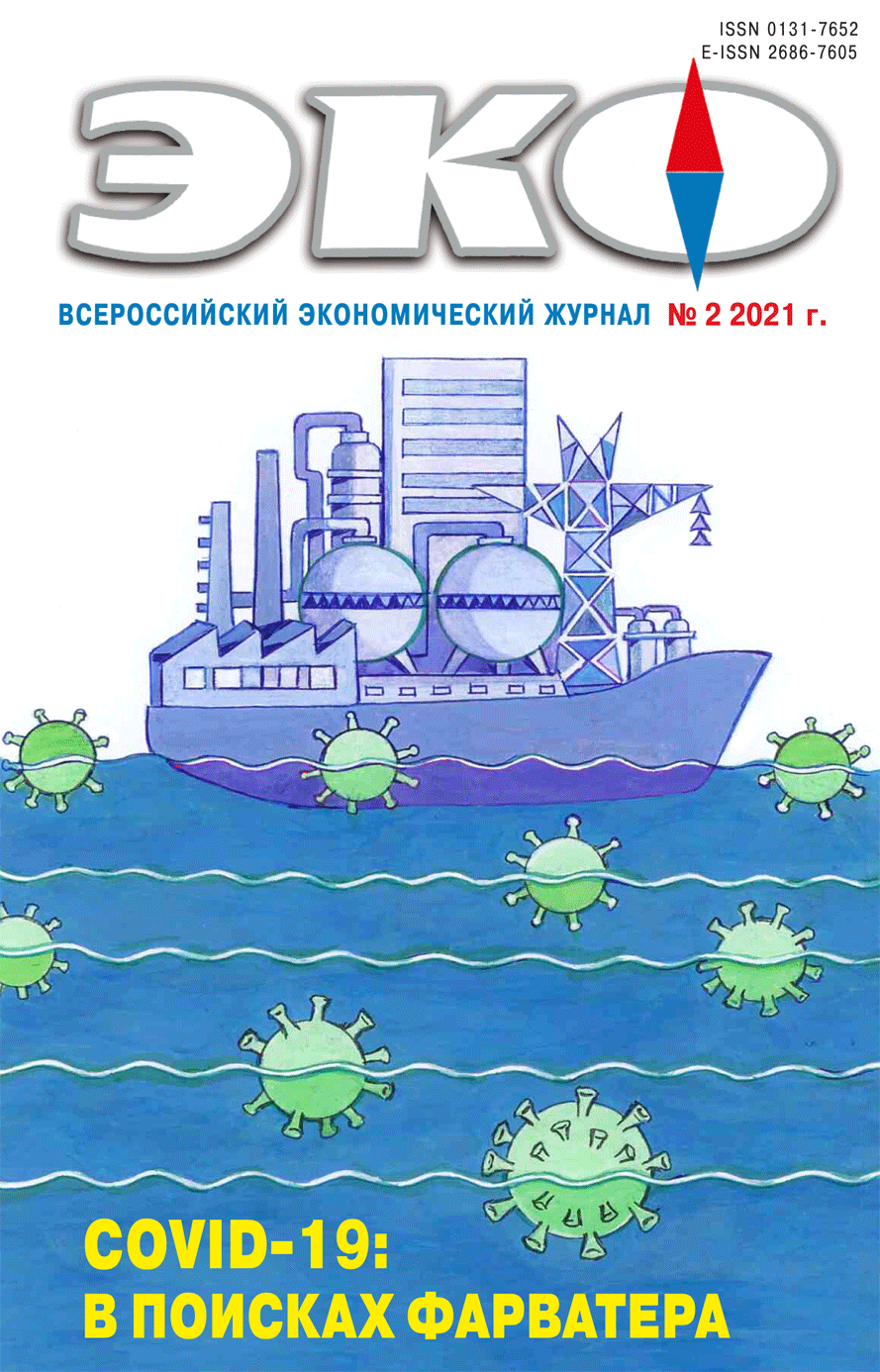Тема номера: COVID-19: В поисках фарватера
Estimating the Economic Impact on European Professional Football of the Coronavirus Pandemic
Published 2021-02-01
Keywords
- sport economics,
- sport finance,
- football economics,
- football finance,
- loss evaluation
- COVID-19,
- the impact of coronavirus on the economy (sports) ...More
How to Cite
1.
Solncev И. Estimating the Economic Impact on European Professional Football of the Coronavirus Pandemic. ECO [Internet]. 2021 Feb. 1 [cited 2026 Jan. 18];51(2):40-61. Available from: https://ecotrends.ru/index.php/eco/article/view/4195
Abstract
The author considers the economic impact of the coronavirus pandemic on Europeanfootball, compares it with the Russian practice and proposes management approaches in the new circumstances.The analysis showed the following results: if the Championship resumes, damages would be limited to match day revenues and optional reduction in sponsorship contracts depending on the economic sector, presented by partners of a club. At the same time, clubs have an opportunity to reduce costs (namely – the wages) and implement new commercial projects (new sponsorship platforms and activations). An important limitation of the study is the uncertainty caused by the inability to predict the exact end of the virus pandemic, as well as the need for an individual approach to each club, considering its revenues & cost structure and commercial potential.References
- Солнцев И. В. Финансы в футболе. М.: Проспект, 2019. 296 с.Солнцев И. В. Повышение финансовой устойчивости российских футбольных клубов// Экономический журнал Высшей школы экономики. 2020. № 1. С. 117–145.Davies, L. E.; Taylor, P.; Ramchandani, G. & Christy, E. (2019). Social return on investment (SROI) in sport: a model for measuring the value of participation in England, International Journal of Sport Policy and Politics, [online published 24 April 2019] DOI: 10.1080/19406940.2019.1596967Dietl, H., Grossmann M., Lang, M. (2011). Competitive Balance and Revenue Sharing in Sports Leagues With Utility-Maximizing Teams. Journal of sports economics, 12, 3. Рp. 284–308.European Commission Research Report. SportsEconAustria Institute of Sports Economics, Sheffield Hallam University Sport Industry Research Centre. (2018). Study on the Economic Impact of Sport through Sport Satellite Accounts. April. Published online: https://op.europa.eu/en/publication-detail/-/publication/865ef44c-5ca1–11e8-ab41–01aa75ed71a1/language-enKesenne, S. (1996). League management in professional team sports with win maximizing clubs. European Journal for Sport Management, 2, 2. Рp. 14–22.Leach, S., Szymanski, S. (2015). Making money out of football. Scottish Journal of Political Economy, 62, 1. Рp. 25–50.Rohde, M., & Breuer, C. (2016). Europe’s Elite Football: Financial Growth, Sporting Success, Transfer Investment, and Private Majority Investors. International Journal of Financial studies. Рp. 1–20.Sloane, P. (1971). The economics of professional football: The football club as an utility maximizer. Scottish Journal of Political Economy, 17, 2. Рp. 121–46.Szymanski, S. (2010). The Financial Crisis and English Football: The Dog That Will Not Bark. International Journal of Sport Finance. Рp. 28–40.Szymanski, S., & Kuper`, S. (2009). Soccernomics. New York: Nation Books.The Swiss Ramble. (2020), The impact of the coronavirus pandemic on the football world. Available at: https://threader.app/thread/1249951316824281093UEFA. (2020). The European Club Footballing Landscape, Available at: https://www.uefa.com/MultimediaFiles/Download/OfficialDocument/uefaorg/Clublicensing/02/63/79/75/2637975_DOWNLOAD.pdf

